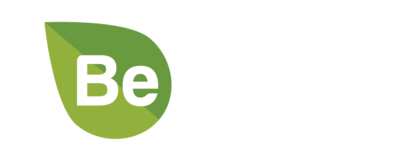Skullcap
SKULLCAP
The origins of Skullcap (mad-dog weed, helmet flower) go back to at least the 1700s, and likely even earlier. It is a perennial plant that grows across the United States, but was possibly seeded through the Silk Road and overseas transport from Asia. It has been used in Traditional Chinese medicine, and Ayurvedic medicine, alike. Skullcap, or Scutellaria, comes from the Latin ‘scutella’, meaning a small tray. This is what the blooming flowers resemble in the plant’s fruiting period. The leaves of the plant were often made into a tea, used to treat many ailments. The Cherokee of North America, along with the Iroquois have used Skullcap in decoctions for millennia as a sedative, nerve tonic, and medicine.
Benefits of SKULLCAP
Herbal remedies made with Skullcap have many uses.
- Sedative (used to treat anxiety, nervousness, heart palpitations, jerkiness, twitching, involuntary movements, tremors, restlessness, insomnia
- Protects against neurological disorders, such as Alzheimer's disease, Parkinson's disease, anxiety, and depression
- Used to prevent and treat rabies in people and animals
- Anti-cancer
- Anti-inflammatory
- Anti-viral
- Anti-inflammatory
- Reduces allergies
- Anti-fungal
- Anti-microbial
- Fights infections
- Anti-Candida Albicans
- Supports healthy expression of DNA
- Stimulates growth of beneficial neurons in the brain
- Regulates sleep cycles
- Lowers blood sugar
How Does SKULLCAP Work?
The primary active compounds in Scutellaria barbata are barbatin A, barbatin B, barbatin C, scutebarbatine B, resveratrol, baicalin, berberine, apigenin, luteolin, ethyl-7-O-apigenin-glucuronate, apigenin-7-O-beta-glucoside, apigenin-7-O-neohesperidoside, and benzyaldehyde. The major active phytocompound is scutellarin. The essential oil of Scutellaria barbata has been found to contain hexahydrofarnesylacetone (11.0%), 3,7,11,15-tetramethyl-2-hexadecen-1-ol (7.8%), menthol (7.7%), and 1-octen-3-ol (7.1%).
These compounds are thought to reduce inflammation, reduce oxidative stress, and scavenge free-radicals to improve overall health.
Suggested Dosage
The suggested dosage is typically:
- Dried herb: 1 to 2 grams 3 times/day.
- Tea: 240 mL 3 times/day (Pour 250 mL of boiling water over 5 to 10 mL of the dried herb and steep for 10 to 15 minutes).
- Tincture: 2 to 4 mL 3 times/day.
Side Effects of SKULLCAP
Side effects of any kind are usually mild and infrequent. American skullcap has sometimes been contaminated with germander, which can cause liver problems, so your supplement should come from a reliable source. High doses can cause giddiness, stupor, mental confusion, an irregular heartbeat or seizures. It should not be given to children or mothers who are breastfeeding.
Because Skullcap can lower blood sugar, anyone who is taking diabetes medications should be aware of a possible interaction with those medications.
*This statement has not been evaluated by the Food and Drug Administration. This product is not intended to diagnose, treat, cure, or prevent any disease. Always consult your qualified healthcare provider before beginning any diet or program.
